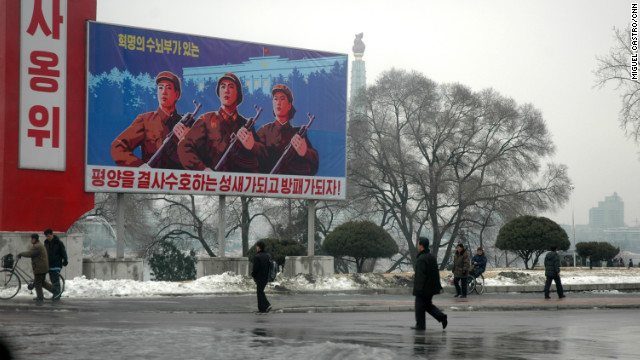
Photo from CNN
Since the famine in the mid-1990s, North Koreans have been compelled to grow and sometimes illegally sell their own food. Accommodated by the lenient attitude of the government to restrict private enterprise’s activities, a free market has been made possible. As a result, a “new, relatively wealthy middle class” has been created.
Just as one think that the current improvement of socio-economic status of North Koreans would help create an environment more conducive to democratic transition, the term “the Pyongyang Illusion” suggests a less optimistic view. The term claims that although Pyongyang is more prosperous than foreigners expect it to be, its “well-being may be inversely correlated with the fate of the rest of the country, as resources are poured into the city at the expense of everyone else.” Because of this uneven distribution of resources (which are often spent inefficiently as patronage), the country’s overall economy and living standards suffer.
Indeed, the idea of the Pyongyang illusion is consistent with the fact that provincial cities still show grim living standards in contrast to that in Pyongyang and that the overall North Korean economy shrank by 0.5% in 2010.
Despite the Pyongyang illusion’s pessimistic view on North Korean economic development, the prosperity in Pyongyang may allow the population, particularly the new middle-class, to gain a glimpse what prosperity means and be inspired by the freedom of choice in democratic countries. With their increased purchasing power and interactions with incoming cultures, it is expected that they will have a greater aspiration to take control of their own-life and hence the larger society. For the poor, who makes up the largest proportion of the population, representing themselves in politics is still a far future because of their lack of the financial capability and skills to mobilize movements. Nonetheless, it is hoped that by witnessing the unequal distribution of resources, the poor will be less submissive to the government than they were in the past, and be more aspired to organize themselves as a collective entity, whose interests need to be represented and respected.
2 replies on “Elective 9: The Pyongyang Illusion: only Pyongyang is doing well.”
As a person with a background in North Korean issues, I want to point out that the North Korean regime’s control of people’s mobility is so stringent that the people in Pyongyang may be largely ignorant of what’s happening in the rest of the country. Even if they do become aware of it, it’s not likely that they have the resources to voice their opinions. Especially in a regime like NK 🙁
I guess the public attitude towards politics in NK is similar to that in China. People either don’t care about politics as long as it does them good, or they lack the political leverage to gain a say for themselves. Maybe this problem happens in all authoritarian countries? (sad face!)